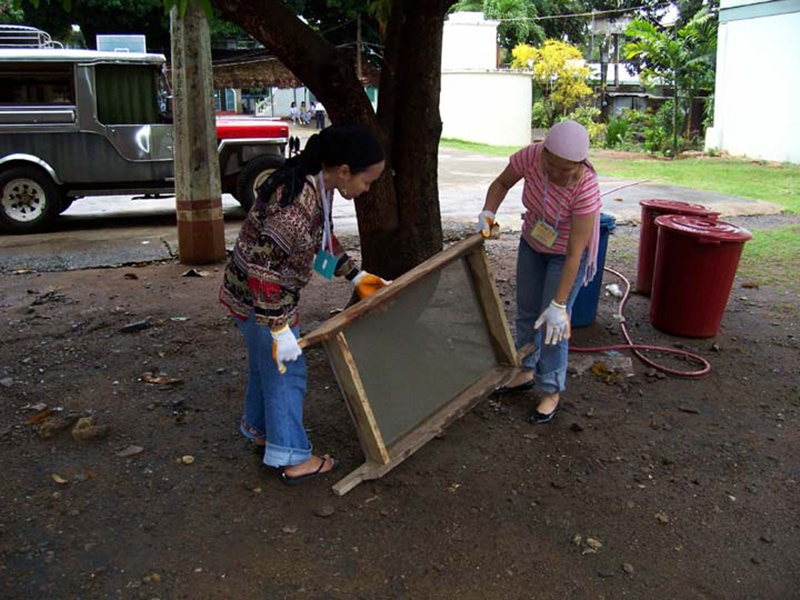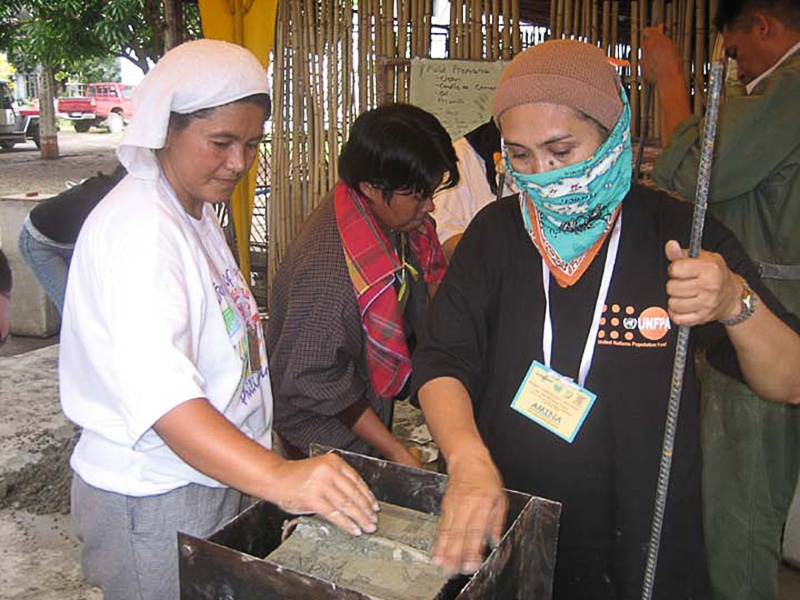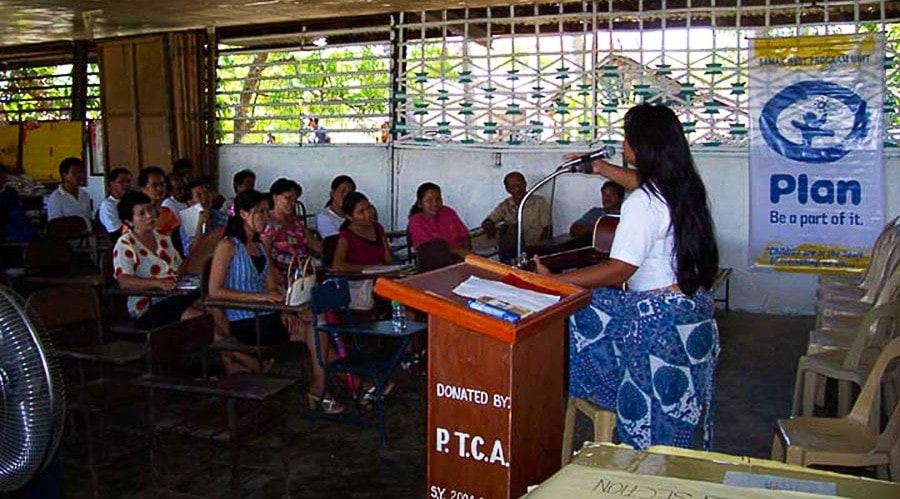Launched in partnership with A Single Drop in Palawan, Philippines in 2006, this project provided training to women from six provinces on constructing household water filters to secure potable drinking water. From this series of four-day educational workshops, thirty women were trained in building the BioSand Filter; sixteen BioSand Filters were constructed; and five pilot projects were launched in each province. Following the workshops, all women trainees secured their own funding to begin providing BioSand Filters to their communities. This training was designed and led by WEA Founding mothers, Gemma Bulos, and Offie Bernardino.
The BioSand Water Filter is an inexpensive slow sand water filter built from local materials.
AT A GLANCE
Studies have shown the BioSand filter can remove more than 90% of bacteria and 100% of parasites, dramatically increasing the safety of the water.*
Diseases related to water and sanitation are one of the major causes of death in children under five. Without access to clean water and basic toilets, and without good hygiene practices, a child’s survival, growth and development are at risk. Over 800 children under age 5 die every day from preventable diarrhoae-related diseases caused by lack of access to water, sanitation, and hygiene.*
In the Philippines, an estimated 26% of Filipinos do not have improved sanitation, translating to more than 24 million people. Almost 8 million Filipinos are openly defecating, which is the third highest total in the Asia Pacific Region.*

Action Taken
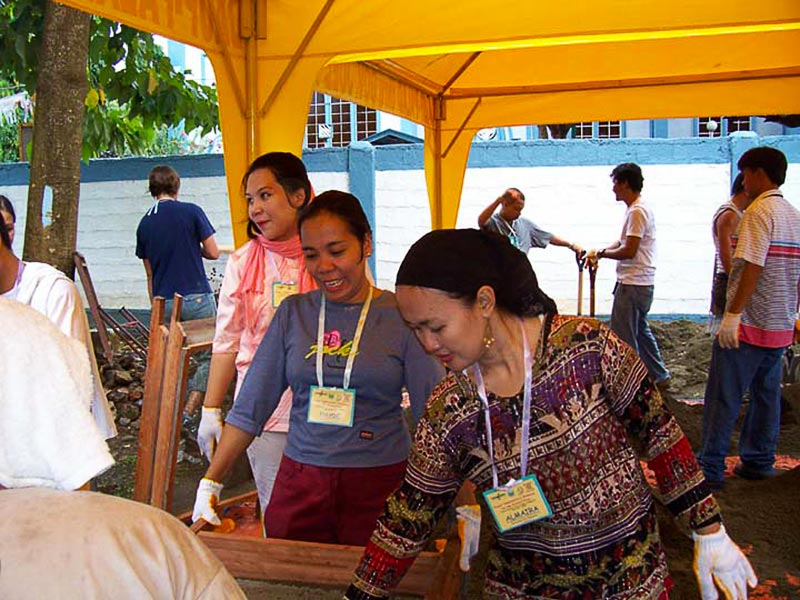
As a result of the trainings, thirty women were trained in building the BioSand Filter technology and twelve BioSand Filters were constructed and implemented into the local community. Women participants went on to plant the seed of the first Women’s World Water Movement’s Regional Network, a network with the intention to foster active participation of women in water supply development projects in the Philippines. Some of the other participants of the training went on to implement safe water projects to address the environmental and health concerns of their community.
Background
Twelve of the eighty million people in the Philippines lack access to safe potable drinking water. Approximately twenty-two million are living without adequate sanitation facilities. Significant infectious water borne diseases plaguing the country are bacterial diarrhea, hepatitis A and typhoid fever. Diarrhea is the highest cause of morbidity and third highest cause of mortality in children under five. Monsoons, typhoons, cyclonic storms, landslides, active volcanoes, destructive earthquakes, and tsunamis affect the Philippines. These year-round natural disasters affect the quality of water and exponentially increase the spreading of contaminants and disease, in addition to human impact.
In the Philippines, forty percent of the population live below the poverty line. While there are many NGOs in the Philippines working diligently to provide potable drinking water, there are few solutions that meet the criteria of the poor: simple, affordable and sustainable.
THE BIOS AND FILTER (BSF)
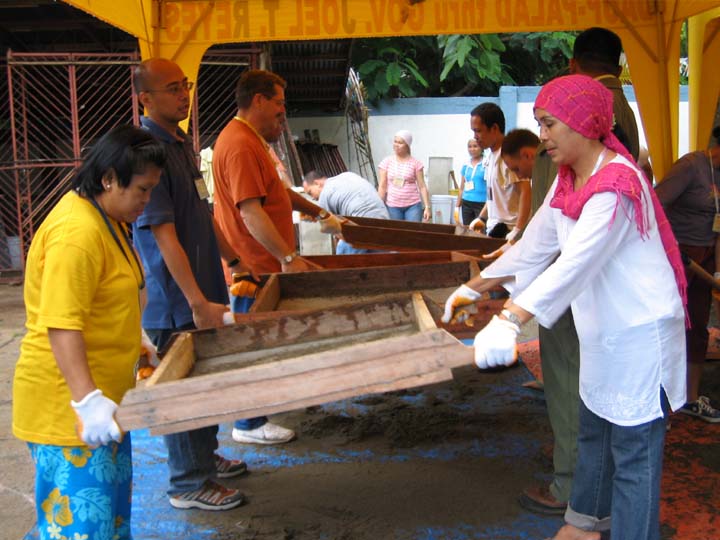
This project offered training in the building of the BioSand Filter (BSF). The BSF is a modified slow sand water filter designed to remove dirt, bacteria, viruses and parasites and other impurities from the water. It is a household point-of-use device that provides potable drinking water at the household level. It requires easy maintenance, is made from local resources, and lasts forever. To date, it has been successfully implemented in 36 countries and impacted over 900,000 people. This capacity-building project transfers technology by training facilitators who can manufacture BSFs and can teach others how to build them as well.
Team
Project Lead: Gemma Bulos, (Founder, A Single Drop, Co-Founder GWWI)
Philippines Host/Organizer: Maria Cleofe P. Bernardino “Offie” (Exec Dir, PNNI), A Single Drop, Center for Affordable Water and Sanitation Technology (CAWST), Palawan NGO Network, Inc. (PNNI)

